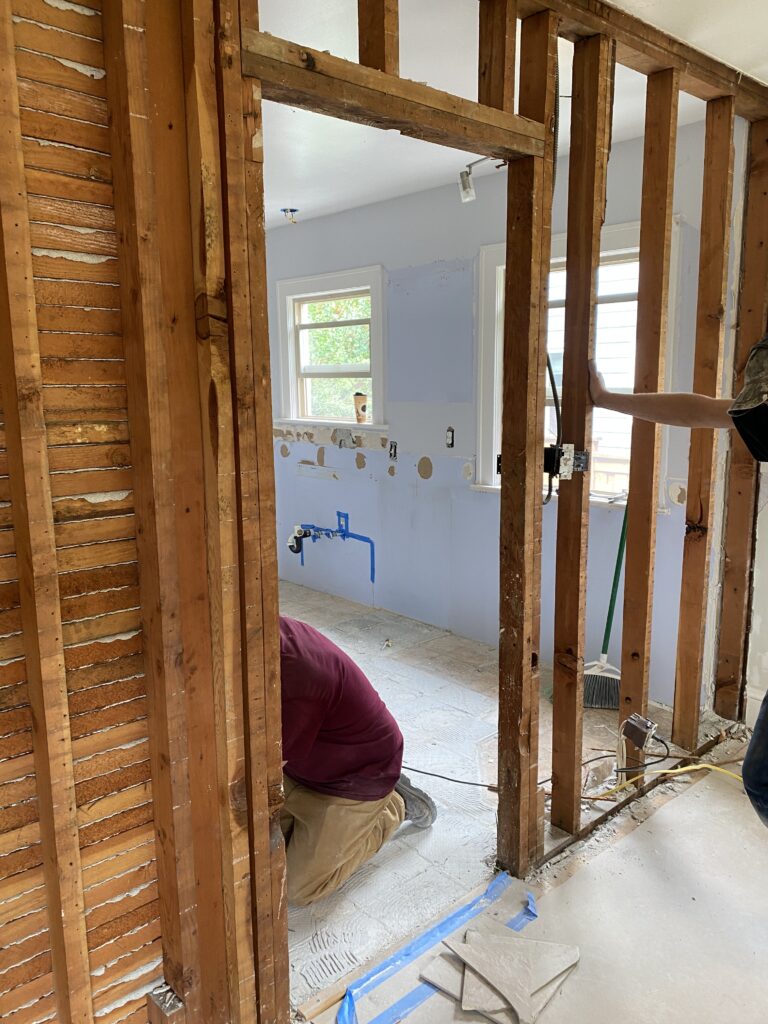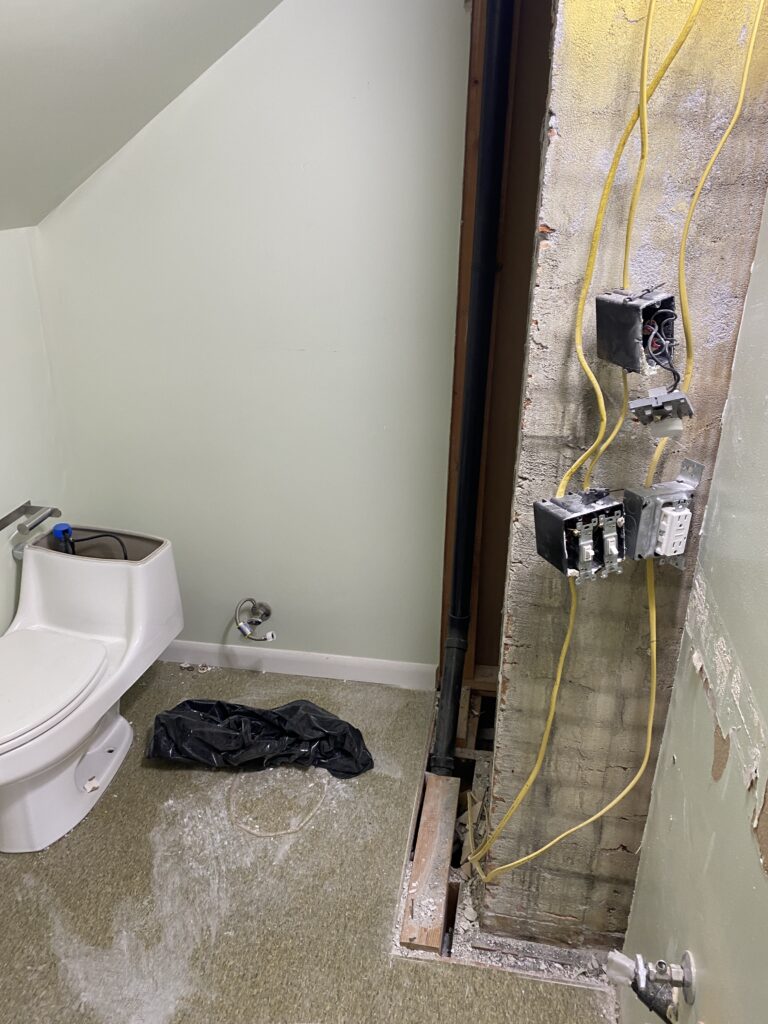By Andy Meeks, September 29, 2023
Home renovations are an exciting endeavor, offering the promise of a more comfortable and beautiful living space. However, if you’re planning to undertake renovations on your home, it’s essential to understand the importance of obtaining the necessary permits. These permits aren’t just bureaucratic red tape; they play a vital role in ensuring the safety, integrity, and compliance of your project with local building codes and regulations.
As an agent, my work intersects with the permitting process mostly on the buyer’s side, so that’s what I’ll mainly speak to in this post. During the inspection contingency period, when all due diligence must occur, I help my clients review the permit history of a property to understand whether all permits that were required were obtained and finalized — and to understand if there was work done to the home that doesn’t have a corresponding permit.
(In the City of Portland, the essential resource for permit histories can be found on PortlandMaps and for municipalities in Washington County, they can be found on InterMaps.)
To be clear, there is nothing preventing someone from buying and selling a home with a checkered permit history or a home where key permits simply weren’t obtained. And in the hyper-competitive seller’s markets that we’ve had over the past few years, many buyers faced a difficult choice: accept a home as-is, permits or not, or lose out on that house to buyers with a higher risk tolerance. My advice to clients in situations like this is that there are several things to consider as they weigh their options and to prepare themselves to be the future property owners:
1. Ensuring Health & Safety
The primary purpose of obtaining permits for home renovations is to ensure the health and safety of owners and occupants. Building codes are in place to ensure that construction work is done correctly and meets safety standards. Whether you’re rewiring your electrical system, altering your plumbing, or making structural changes, permits ensure that a city inspector reviews and approves the work. This oversight helps prevent hazardous conditions that could lead to accidents, fires, or other unfortunate events. Therefore, as a homeowner, you should always seek to obtain work from licensed and bonded contractors and ask them to make sure the work they do is permitted.
Permits do add to the cost (and sometime duration) of a project, which is often why they’re bypassed when someone is doing work that’s already expensive.
2. Retroactive Permitting
Say you purchase a home where a key permit was not obtained by the previous owners, and now you need to have work done on your home that requires a permit. When the city inspector visits your home to review your current permit, they might see work in the home that doesn’t line up with what their permit records indicate. A classic example of this would be a second bathroom. In situations like this, the city could — and likely would — require you to retroactively permit that work. The scope of retroactively-permitting past work varies greatly and could be simply paying the permit fees and getting an inspection, or they could require you to open up the walls to confirm proper plumbing and electrical connections, or pretty much anything in between. Accessory structures that may be prohibited or didn’t adhere to proper codes might need to be completely removed. The consequences could be significant, and it’s hard to know exactly what might happen.
The bottom line is that this could be a significant cost to you, even if you had nothing to do with that work.
3. Property Value & Resale Potential
Properly permitted renovations can significantly enhance the value of your home. When it comes time to sell, buyers are likely to be more interested in properties with documented, code-compliant renovations, and willing to pay a premium for that diligence. Unpermitted work can be a red flag for potential buyers, as it may raise questions about the quality and safety of the improvements, and easily reduce the interest and sales price you’re able to command.
I discuss this with my seller clients frequently. It’s better to address these items upfront at the start of a listing to remain in an advantageous, proactive position, rather than reacting to a now-skeptical buyer. To maximize your home’s resale potential, it’s crucial to have all renovations properly permitted.
4. Omitted Property Taxes
If you purchase a home that’s had improvements done without permits, it’s quite possible that the county tax assessors have not been made aware of the increase in value to the home, and therefore haven’t made the proper adjustments to the value of the home and the respective property tax levels.
In fact, counties aggressively seek information on properties that, according to the existing tax records, may have “omitted property” – property or value that is omitted in error from the tax records due to clerical errors or newly discovered upgrades and/or additions (unpermitted improvements may go unassessed for years).
County tax assessors often become aware of omitted property at the time a home is being marketed for sale. County assessors are members of the RMLS, hire people to watch the RMLS for new listings that have trigger words about improvements, they track sales prices, and other information to search for indications that remodeling has taken place or other signs that properties are under-assessed. If the assessor finds omitted property, they notify the current owners and add the property to tax rolls. The law allows them to assess the property for up to five years previous and the current year, a total of six years. Once omitted property is added to the tax rolls, the assessment becomes a lien on the property that the current property owner must pay.
Bottom line: you can be liable for omitted property for a home you just purchased, even though you weren’t responsible for making the improvements and the improvements were made years ago.
You can read an article I wrote about property tax considerations HERE.
5. Peace of Mind
Perhaps one of the most underrated benefits of obtaining permits is the peace of mind they provide. Knowing that your project has been reviewed and approved by experts can alleviate stress and help you rest easy, knowing that your home is safe and in compliance with all regulations. And isn’t that, more than anything else discussed above, worth the cost?


